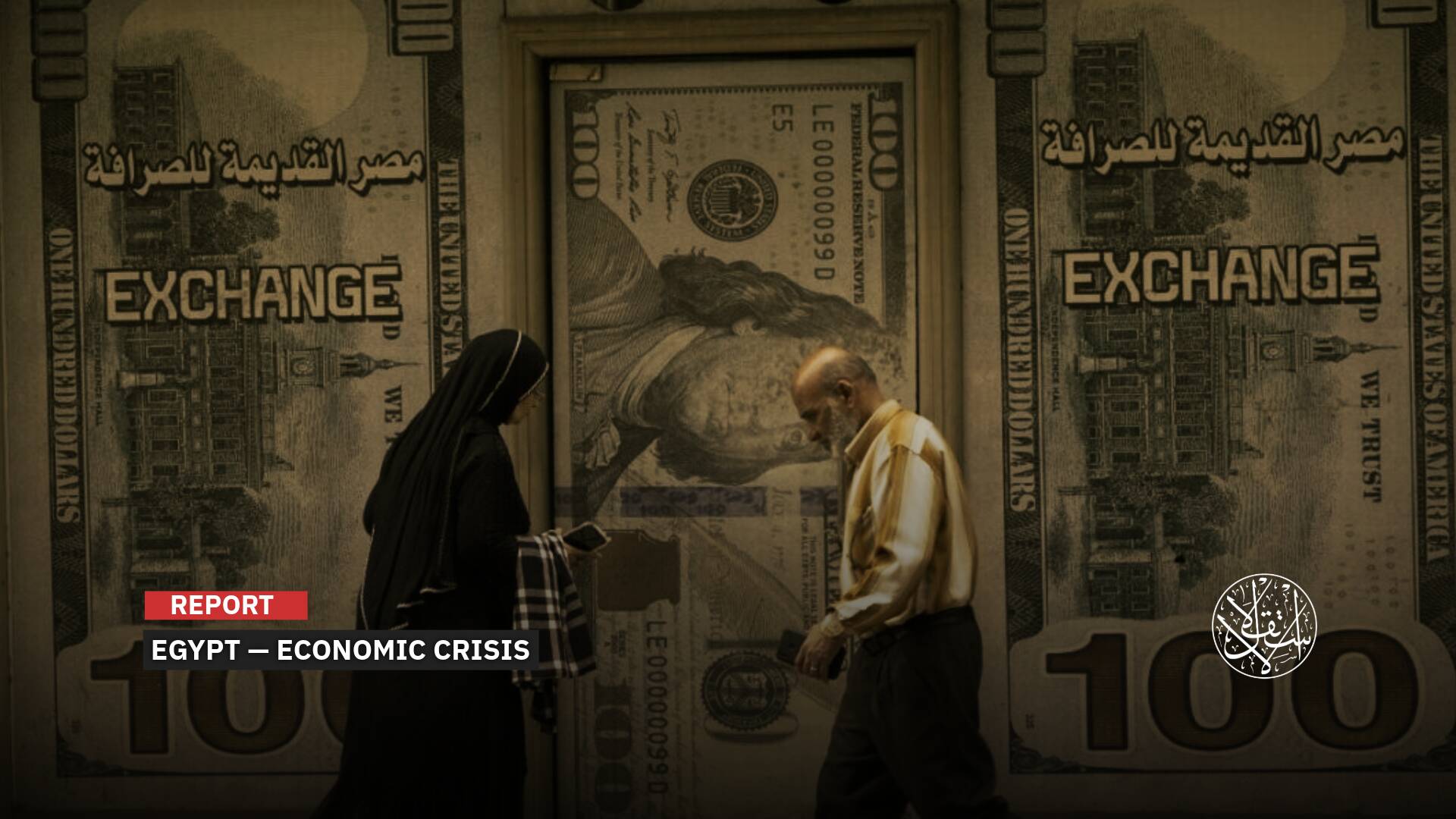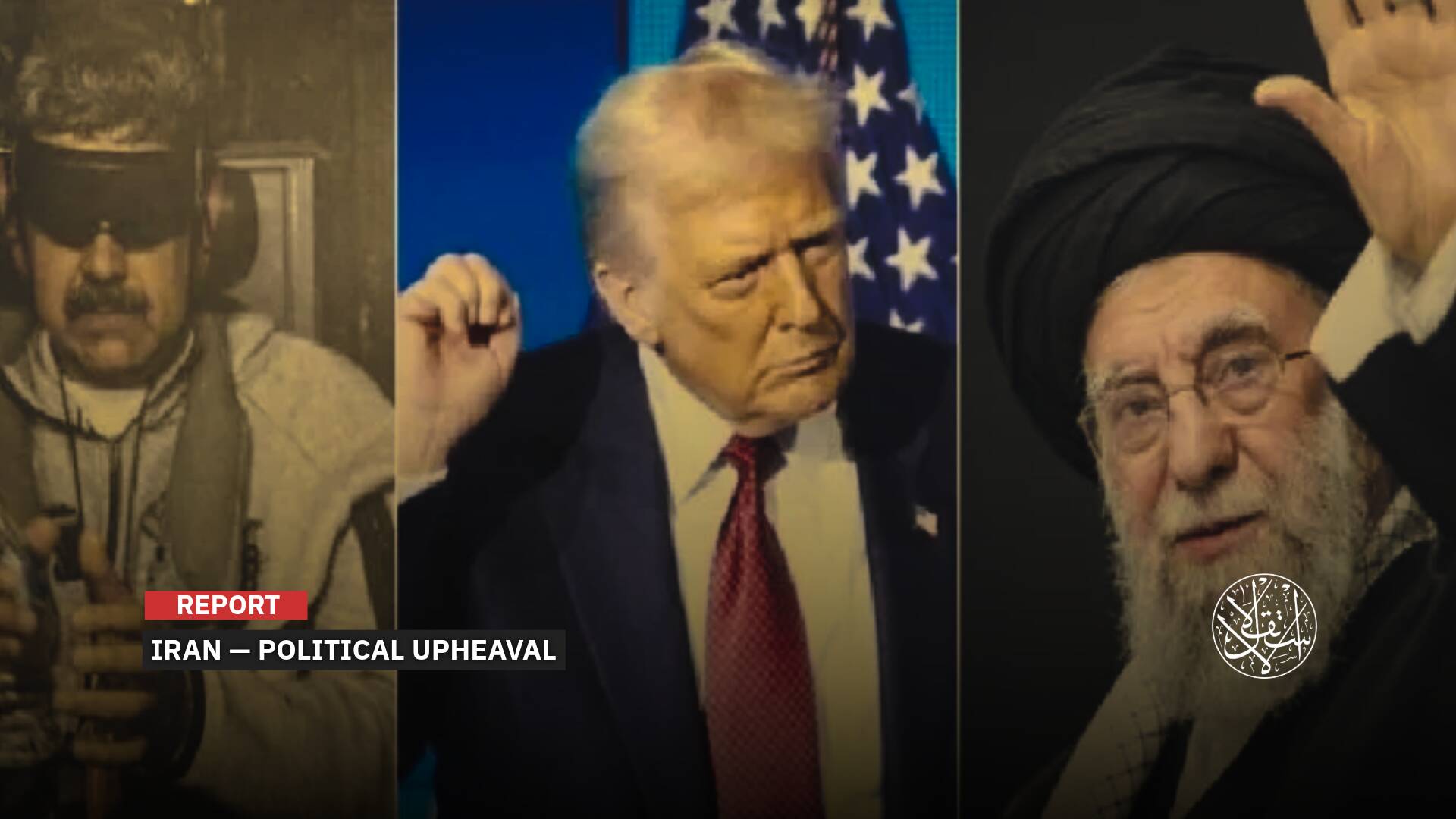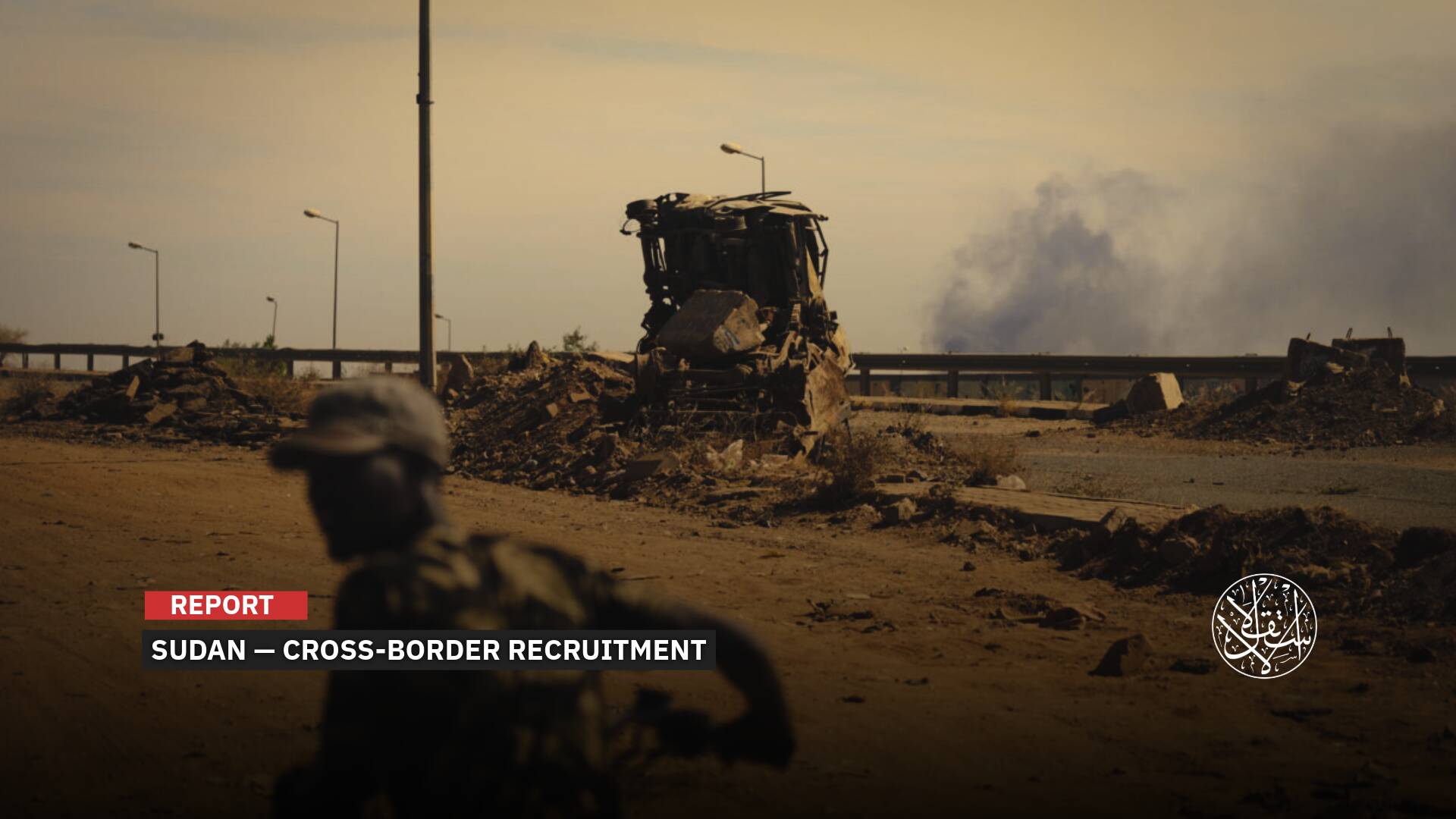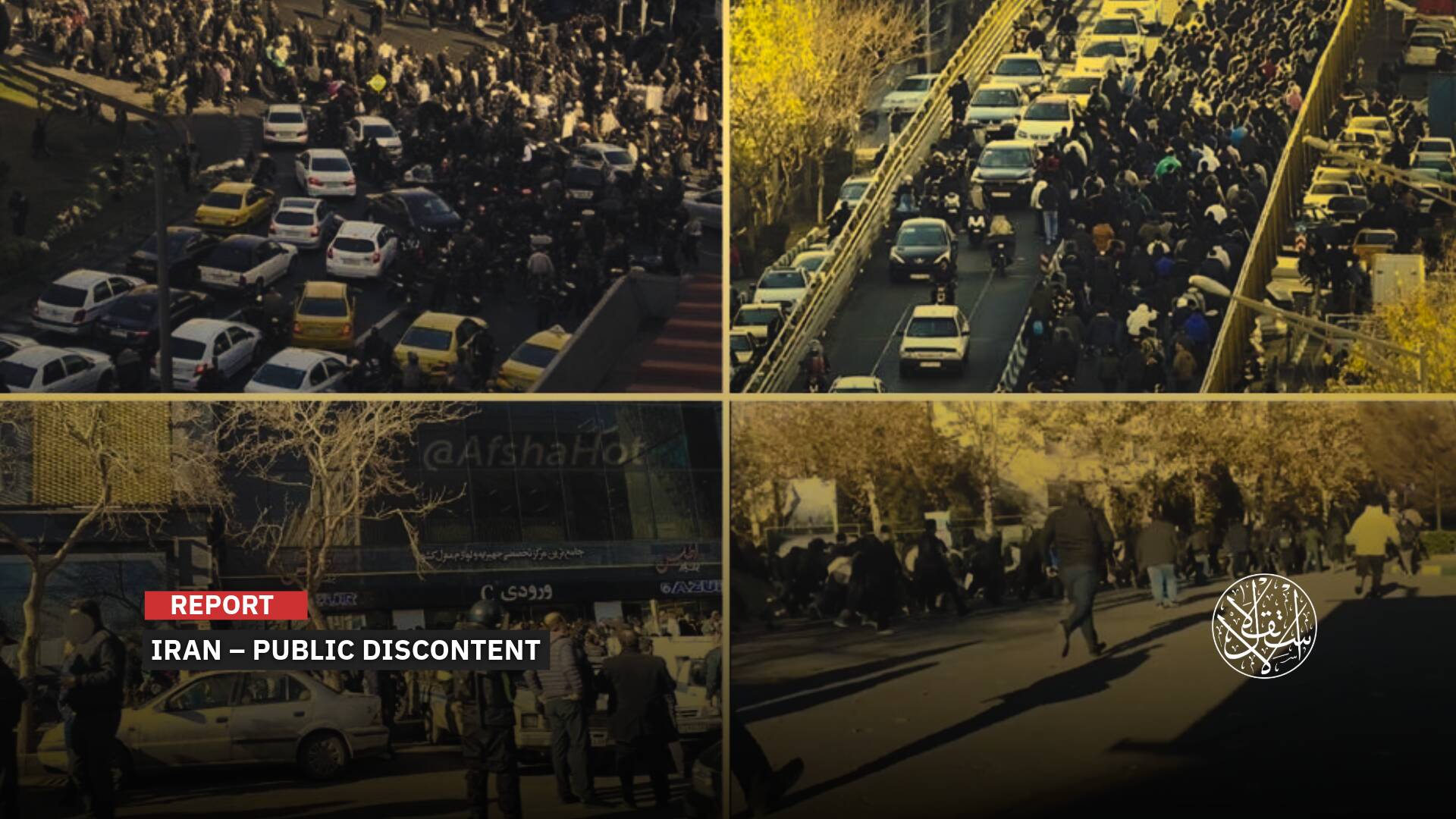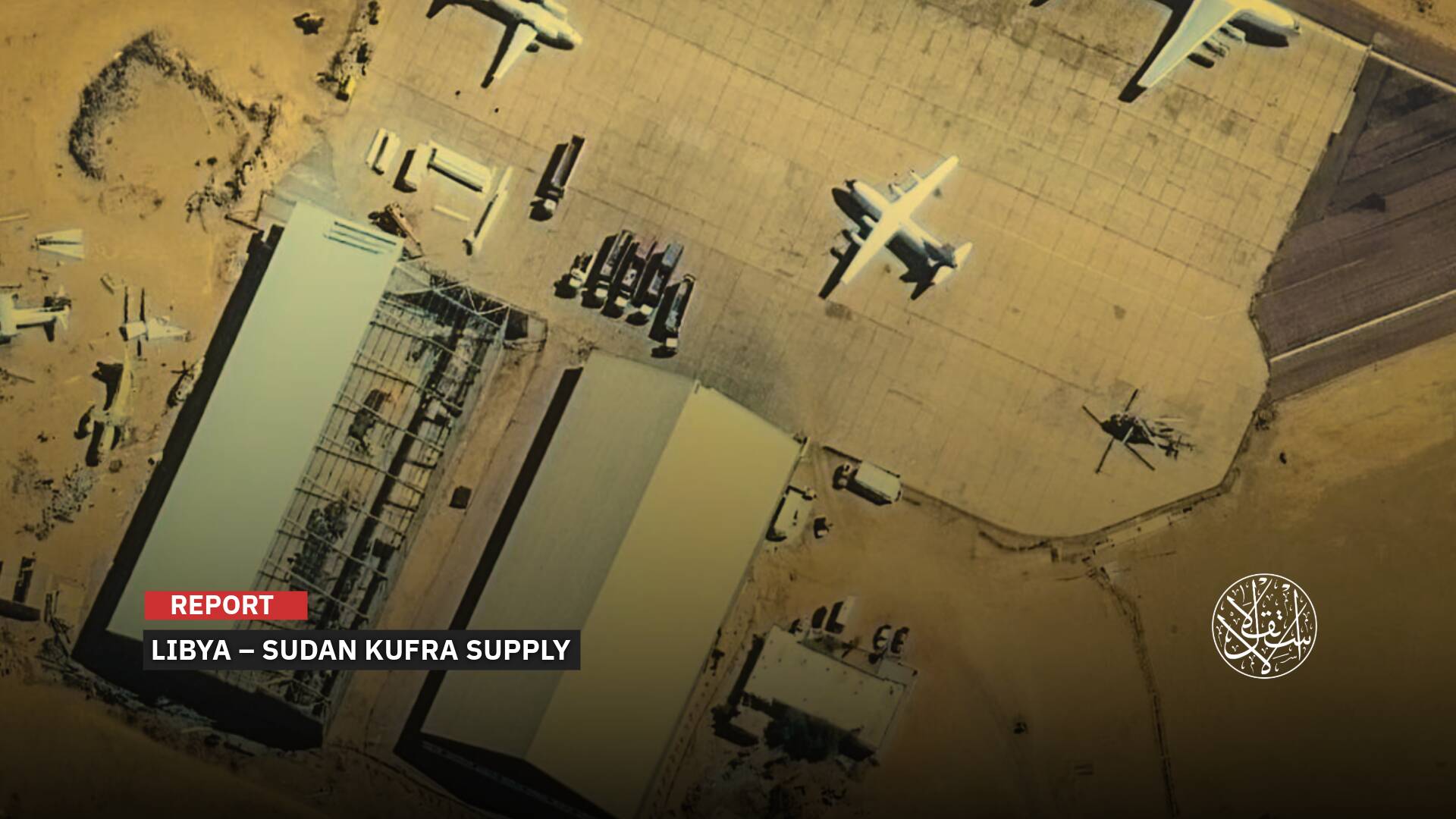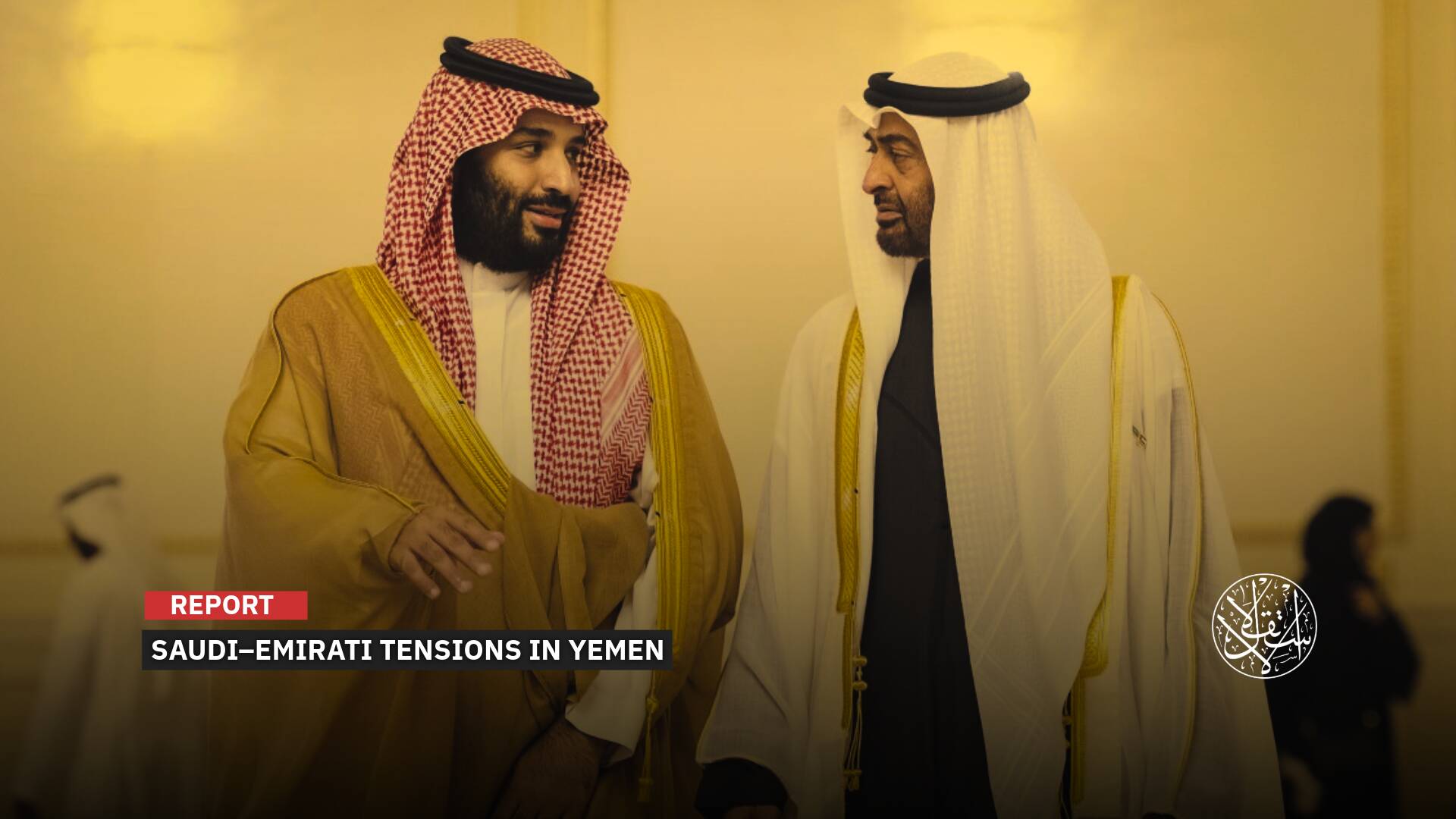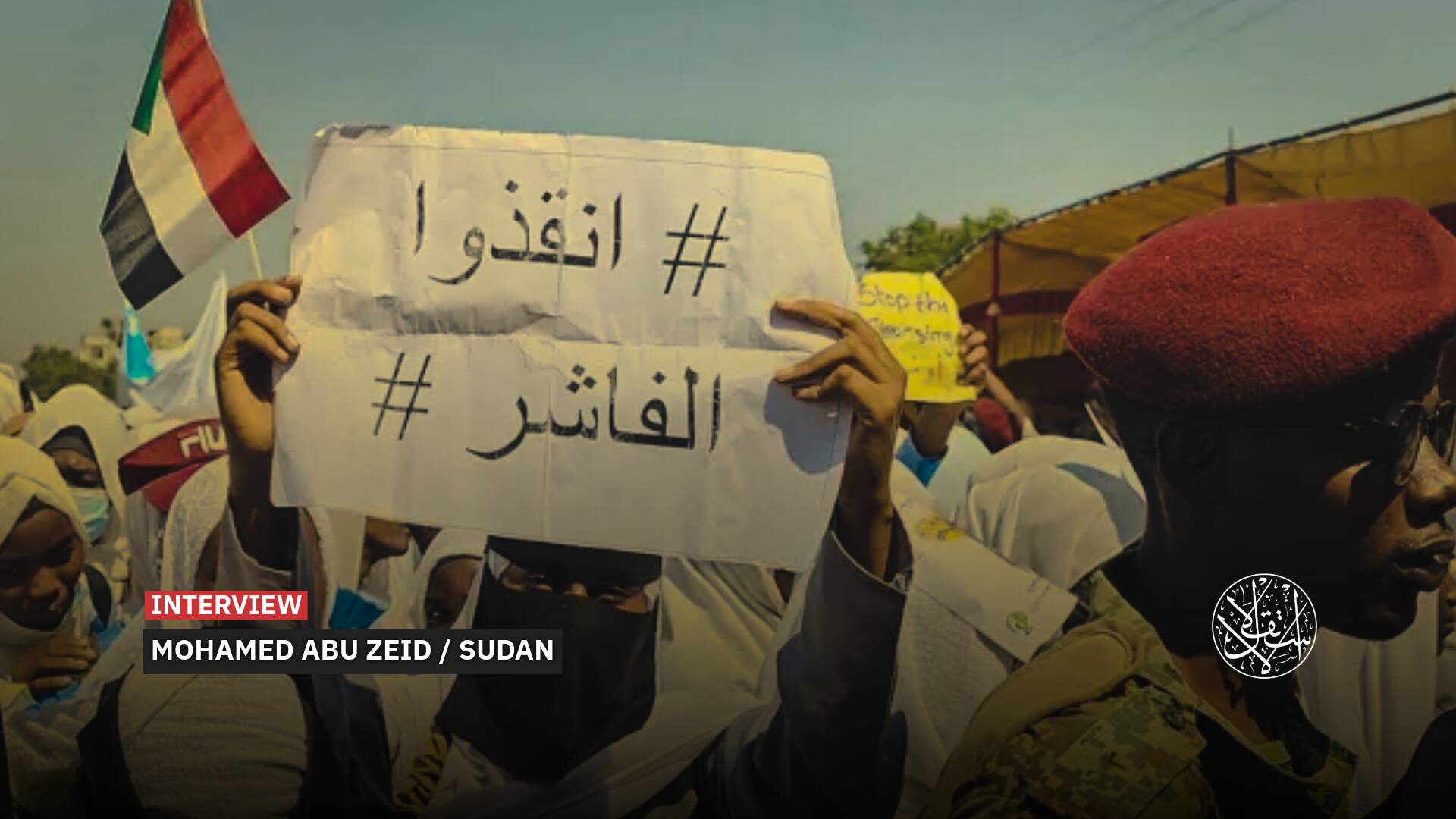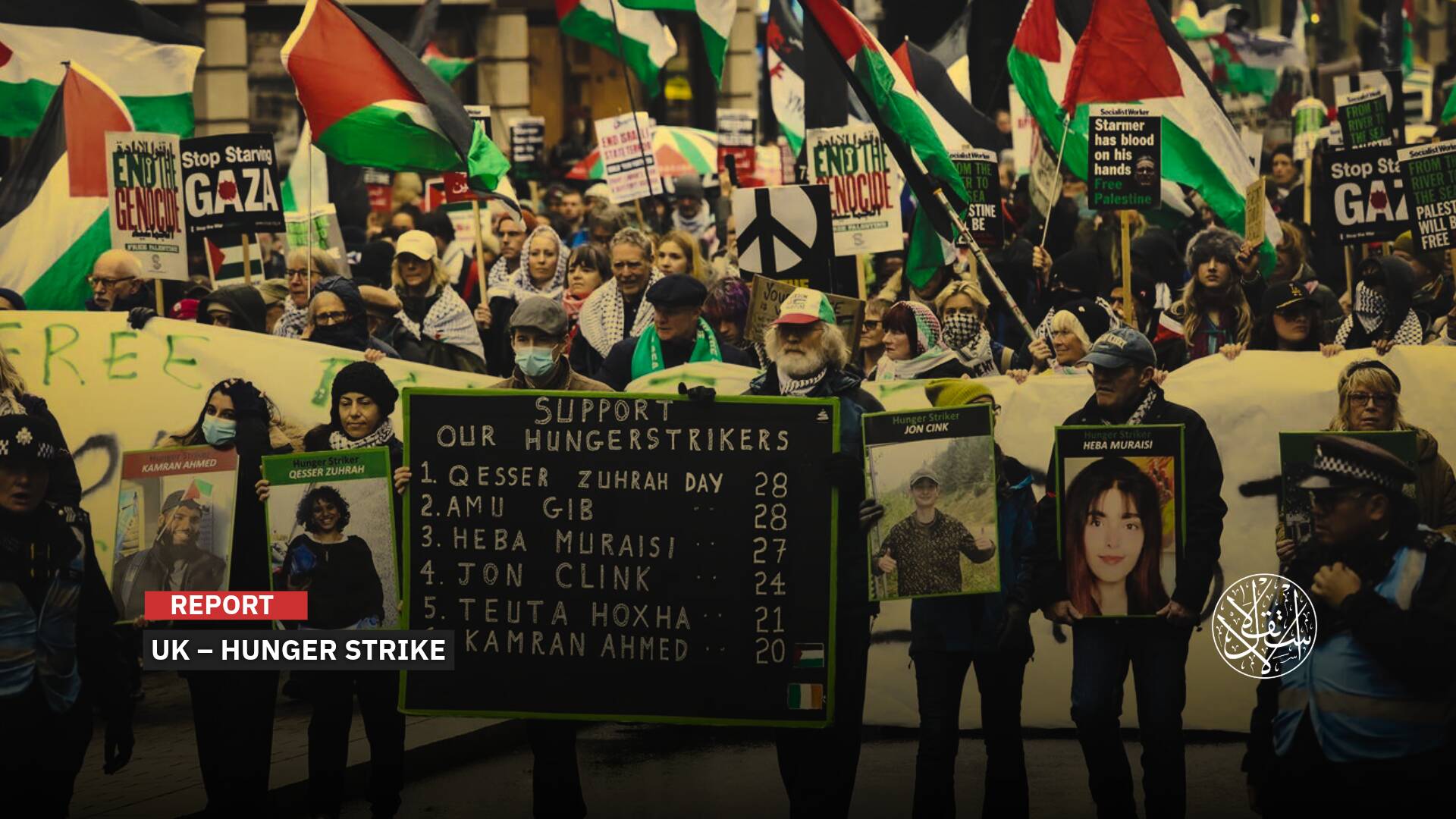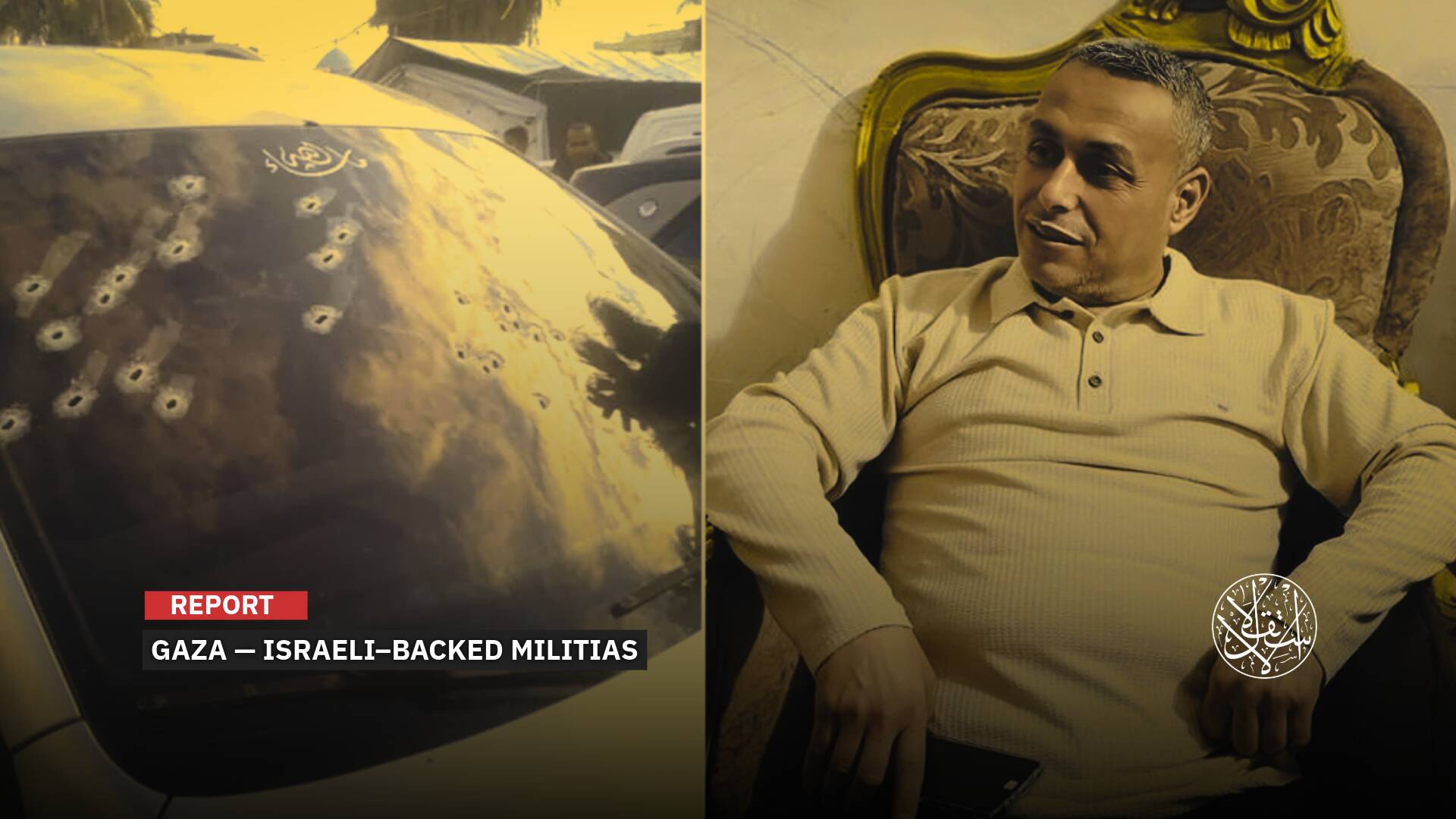The Latest was Qaani: How ‘Israel’ Managed to Infiltrate Leaders of Iran and Hezbollah

The war in Syria provided Israeli spies with a fountain of data.
Over the past few months, “Israel” has used its intelligence and army capabilities to deliver “severe blows to its enemies” in both Lebanon and Iran, exploiting the vulnerabilities and opportunities for infiltration it has established within their security and intelligence networks.
This comes after it faced significant challenges for an entire year in penetrating the structure of the Palestinian Resistance Movement (Hamas) in Gaza and reaching high-ranking leaders through espionage or infiltration, as it has done in Beirut and Tehran.

Interrogating Qaani
Recent developments have sparked conflicting reports about the fate of Esmail Qaani, commander of the Quds Force of Iran’s Revolutionary Guard Corps, following rumors that he was targeted in the southern suburbs of Lebanon.
This was part of the Israeli attack on October 3, 2024, aimed at targeting Hashem Safieddine, the deputy secretary-general of Hezbollah and a candidate to succeed Hassan Nasrallah.
Iran dispelled speculations about Qaani's demise when Iraj Masjedi, deputy commander of the Quds Force and former Iranian ambassador to Baghdad, told reporters that he is “in good health and is carrying out his daily duties,” without providing further details.
On October 10, sources told Middle East Eye (MEE) that the head of the Revolutionary Guard's Quds Force “is alive and unhurt” but is involved in a major investigation into Iranian security breaches.
Qaani has not been seen in public since “Israel” killed Hezbollah leader Hassan Nasrallah in an airstrike on Beirut on September 27, a development that deeply unsettled the Axis of Resistance alliance.
Since then, the Iranian Revolutionary Guard has opened investigations into how “Israel” was able to penetrate the Lebanese group’s most senior leadership and identify where and when Nasrallah would be found.
According to sources in Tehran, Beirut, and Baghdad—including prominent Shia figures and sources close to Hezbollah and the Iranian Revolutionary Guard—Qaani and his team are under lockdown as investigators seek answers.
Qaani had arrived in Lebanon two days after Nasrallah's assassination, accompanied by several Iranian Revolutionary Guard leaders and other figures on a specific mission to “assess the situation on the ground,” according to MEE’s sources.
But after the attack on Safieddine all contact was lost with him for two days, they added.

Iran Revolutionary Guard Corps (IRGC)
There has been increasing speculation online and in the media that Qaani may have been injured or killed amid Israeli ongoing bombardment of Beirut's southern suburbs.
But a source in the IRGC and senior Iraqi officials told MEE that the Quds Force leader was not wounded and was not with Safieddine at the Shura Council meeting, further fueling speculation.
These suspicions were reinforced by the Sky News report which cited private sources claiming that Qaani suffered a heart attack and was hospitalized during his interrogation.
This situation has caused significant concern among the Iranian leadership, particularly Supreme Leader Ali Khamenei, regarding the extent of Israeli infiltration within the command hierarchy.
The same sources revealed that investigations overseen personally by Khamenei began with Qaani after the arrest of his chief of staff, who had reportedly contacted “Israel” through a mediator residing outside Iran.
This comes amid reports of internal disputes within the Quds Force following the assassination of its previous commander, Qassem Soleimani, which have pressured the organization to dismiss Qaani due to suspicions of severe infiltration within the institution.
According to the sources, there is a strong inclination to restructure the Quds Force following Qaani’s potential ousting. He is expected to be honored by Supreme Leader Ali Khamenei in the coming days.
The idea of infiltrating the Quds Force is concerning as it serves as the military arm of Iranian foreign policy extending from Tehran to Damascus, Baghdad, and Sanaa, reaching as far as the southern suburbs of Beirut.

Assassination of Haniyeh
However, the assassination of Ismail Haniya, head of the political bureau of the Islamic Resistance Movement (Hamas), in the Iranian capital of Tehran on July 31, 2024, represented a significant intelligence failure for a regime that boasts about its weapons, capabilities, and its power to “destroy Israel.”
The assassination of a figure as prominent as Haniyeh is a direct assault on “Iran sovereignty;” the details of the attack also exacerbate the situation due to the sensitivity of the targeted location.
Haniyeh was killed at a highly secure location belonging to the Revolutionary Guard in northern Tehran, where senior officials of the resistance axis reside, as per IRNA.
Iran has not revealed the details of Haniyeh's assassination, leading to conflicting accounts and reports from both the Middle East and the West.
The Iranian regime prevented media outlets from covering the event directly, as no images or videos of the location where Haniyeh was present were released.
However, global newspapers began to publish reports indicating substantial breaches in Iran's security and intelligence apparatus, which allowed the Israeli intelligence agency Mossad to carry out the assassination of the Palestinian leader.
On August 3, 2024, The Telegraph cited unnamed Iranian officials who stated that Mossad had recruited Iranian agents to plant explosives at Haniyeh's residence in Tehran.
“They are now certain that Mossad hired agents from the Ansar al-Mahdi protection unit,” an official within the IRGC told The Telegraph from Tehran, referring to an IRGC unit responsible for the safety of high-ranking officials.
“Upon further investigation, they discovered additional explosive devices in two other rooms,” he said.
Under direct orders from Mossad, these agents reportedly installed explosives in three separate rooms within Haniyeh's residence.
CNN previously confirmed that Haniyeh was killed by a bomb smuggled into the guesthouse, which was under the protection of the Revolutionary Guard. This represented a staggering breach of security for the IRGC.

Israeli Breach
There has been discussion regarding the infiltration of “Ansar al-Mahdi,” a security unit within the Revolutionary Guard that is directly responsible for ensuring the safety of high-ranking officials.
The Iranian government launched swift arrests within the security apparatus, reinforcing the hypothesis that the assassination resulted from a significant security breach.
In this context, The New York Times reported on August 3 that Iran arrested more than 20 individuals, including senior intelligence officers, military officials, and employees at the guesthouse where Haniyeh was assassinated.
The report indicated that the specialized intelligence unit responsible for espionage within the Revolutionary Guard is conducting the investigation into the incident and pursuing suspects in hopes of leading them to members of the team that planned, assisted, and executed the assassination.
It was noted that all staff members of the guesthouse were placed under house arrest (most of whom belong to the Ansar al-Mahdi unit), with some being detained and all electronic devices and personal phones confiscated.
The significant security and intelligence failure in Iran cannot be separated from shocking statements made by former Iranian President Mahmoud Ahmadinejad in 2021, when he revealed that the official responsible for countering “Israel” in the Iranian intelligence ministry was an Israeli spy.
In an interview, Ahmadinejad stated that this infiltration enabled “Israel” to successfully carry out significant espionage operations in Iran, including seizing nuclear and aerospace documents from sensitive centers.
He also highlighted details of what he termed “intensive Israeli operations” within Iran, pointing to the existence of a high-level “security gang” in his country that is linked to them.
“This corrupt gang must explain its role in the assassination of nuclear scientists and the explosions in Natanz,” he said.
“They stole extremely important documents in Torqouzabad and at the Space Organization. This is no joke; these are documents of national security. They came, took them and gave them to Israel.”
Hezbollah Leadership
Consequently, these security breaches that shake Tehran and disrupt its stability have engulfed Hezbollah leaders within just a few days.
The deadly Israeli tactics on the Lebanese front have inflicted significant damage on its “strongest enemy” in the region after Hamas, which is Hezbollah.
On September 17 and 18, thousands of pager devices exploded almost simultaneously across Lebanon and Syria, resulting in dozens of fatalities and thousands of injuries.
Two days later, an Israeli airstrike killed at least 45 people, most of whom were Hezbollah fighters.
Following this, a series of airstrikes targeted 1,600 alleged Hezbollah sites in an Israeli attack it code-named “Northern Arrows.”
However, the most challenging aspect lies in the success of the Israeli Occupation state in targeting the leadership structure of Hezbollah, from its top leader, Hassan Nasrallah, down to senior operational commanders. The targeted leaders included:
Hassan al-Qasir – One of the party's leaders in Syria.
Muhammad Ja'far Qasir – The commander of Unit 4400, responsible for funding.
Ali Karaki – The commander of the Southern Front.
Mohamed Hussein Sarour – The commander of the Air Unit.
Ibrahim Qubaisi – Leading the Missile Unit.
Ibrahim Aqeel – The Operations Commander.
Ahmed Wahbi – Commander of the Redwan Unit.
Fouad Shukr – The military advisor and Nasrallah's right-hand man.
Mohammad Nasser – The Operations Commander on the border with “Israel.”
Sami Taleb – Commander of the Victory Unit.
Nabil Qaouk– The Deputy Head of the Executive Council.

Intelligence Units
The question that arose strongly was how the Israeli Occupation was able to acquire such a valuable target and deliver that powerful strike swiftly and decisively.
A report published by the Financial Times at the end of September 2024 answered this question.
“In nearly four decades of battling Hezbollah, only recently has Israel truly turned the tide [..] What changed is the depth and quality of the intelligence that Israel was able to lean on in the past two months.”
The newspaper explained that for two decades, “Israel’s sophisticated signals intelligence Unit 8200, and its military intelligence directorate, called Aman, mined vast amounts of data to map out the fast-growing militia in Israel’s 'northern arena’.”
It also noted that Hezbollah's deployment in Syria during its fight alongside Bashar al-Assad's forces against the opposition over the past 13 years helped reveal much information about the Lebanese group.

The expansion of Hezbollah's units in Syria weakened their internal surveillance mechanisms, leading to a significant opening for Israeli intelligence infiltration.
According to Financial Times, the war in Syria provided Israeli spies with “a fountain of data, much of it publicly available for Israel’s spies.”
For instance, the martyr posters regularly used by Hezbollah to mourn its dead in Syria were filled with small details.
These included the town to which the fighter belonged, the location of his death, and the circle of friends who spread the news on social media.
The funerals of Hezbollah's dead also revealed much information, occasionally bringing senior leaders out of the shadows, if only for a brief moment.
Yezid Sayigh, a fellow at the Carnegie Middle East Center, analyzed the security breach within the party, noting that they shifted from being highly disciplined and rigid to a group that allowed more people in than necessary, which marked the start of their decline.
Sources
- How Israeli spies penetrated Hizbollah
- Mossad hired Iranian agents to plant bombs in Haniyeh’s residence
- Exclusive: Esmail Qaani under guard and questioned as Iran probes Nasrallah killing
- Infiltrating the Quds Force: How Deep Is Israel’s Penetration in Iran? [Arabic]
- Report: How Israeli Spies Infiltrated Hezbollah [Arabic]
- How Did Israel Find the "High-Value Target"? [Arabic]
- Israel's war on Lebanon: Lethal tactics, no endgame
- The New York Times: Widespread Arrests in Iran Following Haniyeh's Assassination [Arabic]



